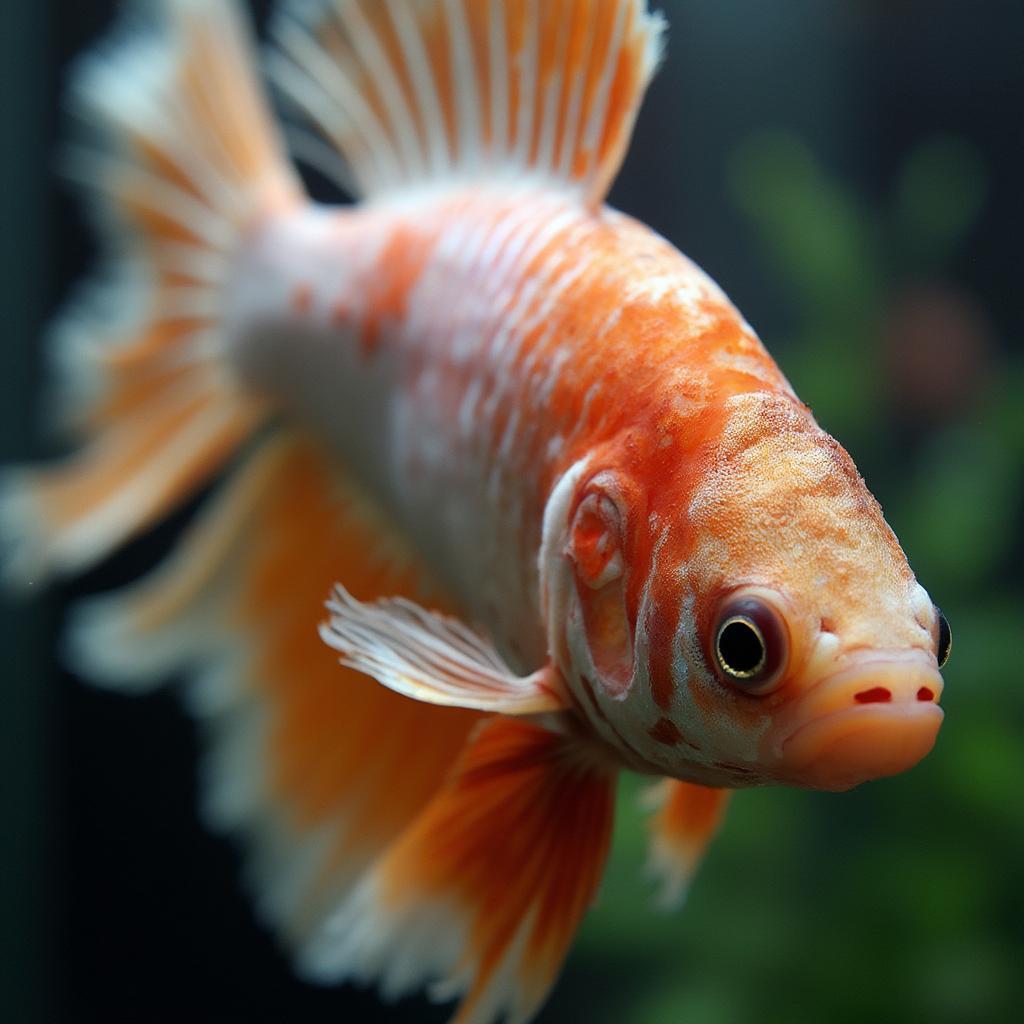Your cart is currently empty!

How to Care for Your Betta Fish: Essential Tips
Keeping a betta fish can be a rewarding experience, but providing proper care is crucial for their health and happiness. This guide covers everything you need to know about how to care for your betta fish, from setting up the perfect tank to ensuring a healthy diet. Let’s dive in!
Understanding Your Betta’s Needs
Betta fish, also known as Siamese fighting fish, are native to the shallow, slow-moving waters of Southeast Asia. Understanding their natural habitat helps us replicate the ideal environment in our homes. These beautiful creatures need specific conditions to thrive, and neglecting these can lead to health issues and a shortened lifespan.
Tank Size and Setup
One of the most common misconceptions about betta fish care is that they can live in small bowls or vases. While they can survive in these conditions, they won’t thrive. A minimum tank size of 5 gallons is recommended to provide enough space for swimming and exploring.
A larger tank also allows for better water quality control, which is essential for your betta’s health. Include a filter and heater to maintain a stable water temperature between 78-80°F (25.5-26.7°C). Avoid strong currents, as bettas prefer calm water.
Live plants are highly beneficial, providing natural filtration and oxygenation, as well as creating a more enriching environment for your betta. Choose plants like Java fern, Anubias, and Amazon sword.
Water Quality and Maintenance
Maintaining pristine water quality is paramount to betta fish care. Regular water changes are essential to remove waste products and replenish essential minerals. Perform a 25% water change weekly, using a dechlorinator to remove harmful chlorine and chloramine from tap water.
Test the water parameters regularly using a reliable test kit to ensure the water is safe for your betta. Ideal parameters include a pH of 6.5-7.5, ammonia and nitrite levels of 0, and nitrate levels below 20 ppm.
Feeding Your Betta
Betta fish are carnivores and require a diet rich in protein. High-quality betta pellets or flakes should form the basis of their diet. Supplement with occasional treats like bloodworms, daphnia, and brine shrimp.
Avoid overfeeding, as this can lead to obesity and water quality issues. Feed your betta small portions twice a day, removing any uneaten food after a few minutes.
Common Health Issues
Even with the best care, betta fish can sometimes experience health problems. Fin rot, ich, and velvet are common ailments that can be treated with appropriate medications. Early detection and prompt treatment are crucial for a successful recovery.
“Regular observation is key to early disease detection in bettas,” says Dr. Emily Carter, an aquatic veterinarian with over 15 years of experience. “Changes in appetite, lethargy, and fin clamping can all be indicators of underlying health problems.”
 Betta fish exhibiting signs of fin rot
Betta fish exhibiting signs of fin rot
Creating a Stimulating Environment
Betta fish are intelligent creatures and benefit from a stimulating environment. Provide enrichment items like floating plants, caves, and decorations to explore and interact with.
Avoid placing mirrors in the tank, as this can stress your betta, who may perceive their reflection as a rival.
“Providing enrichment not only keeps your betta entertained but also helps to reduce stress and promote their overall well-being,” adds Dr. Carter. “A happy betta is a healthy betta.”
Conclusion
How to care for your betta fish encompasses various aspects, from setting up the right environment to providing a nutritious diet and recognizing potential health issues. By following these essential tips, you can ensure your betta fish thrives and enjoys a long, healthy life. Remember, a well-cared-for betta will bring years of joy and companionship to your home.
FAQ
- How often should I clean my betta’s tank? A 25% water change should be performed weekly.
- What is the ideal temperature for a betta fish tank? The ideal temperature is between 78-80°F (25.5-26.7°C).
- Can I keep two bettas together? Male bettas are typically aggressive towards each other and should be kept separately. Females can sometimes be kept together in a sorority tank with careful planning and observation.
- How much should I feed my betta? Feed small portions twice a day, removing any uneaten food after a few minutes.
- What are signs of a sick betta? Lethargy, loss of appetite, fin clamping, and changes in color or behavior can indicate illness.
- Do bettas need a filter? Yes, a filter is crucial for maintaining good water quality.
- Can bettas live in tap water? No, tap water must be treated with a dechlorinator to remove harmful chemicals.
Common Betta Fish Care Scenarios
- Cloudy water: This often indicates a bacterial bloom and necessitates a partial water change and investigation into the cause, such as overfeeding or a dirty filter.
- Lethargy: If your betta is unusually inactive, check the water parameters and consider potential illnesses.
- Fin nipping: This can be caused by stress, boredom, or poor water quality. Address the underlying issue to prevent further damage.
Further Reading and Resources
For more in-depth information on betta fish care, you can explore these resources on our website:
- Betta Fish Tank Setup Guide
- Betta Fish Diseases and Treatments
- Choosing the Right Betta Fish Food
Need assistance with your car’s diagnostic trouble codes or other automotive concerns? Contact us via WhatsApp: +1(641)206-8880 or Email: [email protected]. Our 24/7 customer support team is ready to help!

Leave a Reply